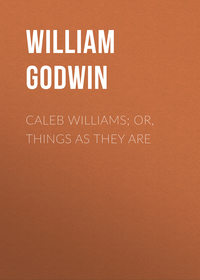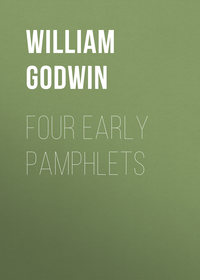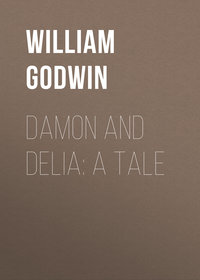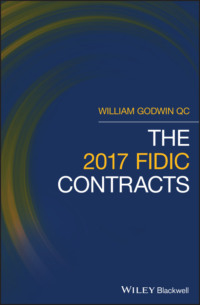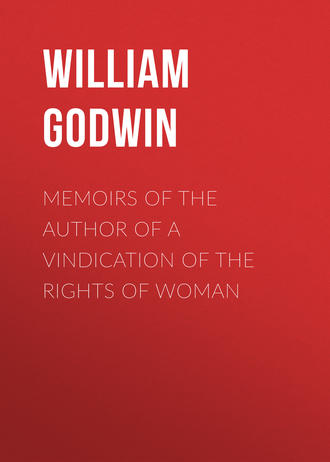 полная версия
полная версияMemoirs of the Author of a Vindication of the Rights of Woman
The period, from the end of the year 1787 to the end of the year 1790, though consumed in labours of little eclat, served still further to establish her in a friendly connection from which she derived many pleasures. Mr. Johnson, the bookseller, contracted a great personal regard for her, which resembled in many respects that of a parent. As she frequented his house, she of course became acquainted with his guests. Among these may be mentioned as persons possessing her esteem, Mr. Bonnycastle, the mathematician, the late Mr. George Anderson, accountant to the board of control, Dr. George Fordyce, and Mr. Fuseli, the celebrated painter. Between both of the two latter and herself, there existed sentiments of genuine affection and friendship.
CHAP. VI.
1790-1792
Hitherto the literary carreer of Mary, had for the most part, been silent; and had been productive of income to herself, without apparently leading to the wreath of fame. From this time she was destined to attract the notice of the public, and perhaps no female writer ever obtained so great a degree of celebrity throughout Europe.
It cannot be doubted that, while, for three years of literary employment, she "held the noiseless tenor of her way," her mind was insensibly advancing towards a vigorous maturity. The uninterrupted habit of composition gave a freedom and firmness to the expression of her sentiments. The society she frequented, nourished her understanding, and enlarged her mind. The French revolution, while it gave a fundamental shock to the human intellect through every region of the globe, did not fail to produce a conspicuous effect in the progress of Mary's reflections. The prejudices of her early years suffered a vehement concussion. Her respect for establishments was undermined. At this period occurred a misunderstanding upon public grounds, with one of her early friends, whose attachment to musty creeds and exploded absurdities, had been increased, by the operation of those very circumstances, by which her mind had been rapidly advanced in the race of independence.
The event, immediately introductory to the rank which from this time she held in the lids of literature, was the publication of Burke's Reflections on the Revolution in France. This book, after having been long promised to the world, finally made its appearance on the first of November 1790; and Mary, full of sentiments of liberty, and impressed with a warm interest in the struggle that was now going on, seized her pen in the first burst of indignation, an emotion of which she was strongly susceptible. She was in the habit of composing with rapidity, and her answer, which was the first of the numerous ones that appeared, obtained extraordinary notice. Marked as it is with the vehemence and impetuousness of its eloquence, it is certainly chargeable with a too contemptuous and intemperate treatment of the great man against whom its attack is directed. But this circumstance was not injurious to the success of the publication. Burke had been warmly loved by the most liberal and enlightened friends of freedom, and they were proportionably inflamed and disgusted by the fury of his assault, upon what they deemed to be its sacred cause.
Short as was the time in which Mary composed her Answer to Burke's Reflections, there was one anecdote she told me concerning it, which seems worth recording in this place. It was sent to the press, as is the general practice when the early publication of a piece is deemed a matter of importance, before the composition was finished. When Mary had arrived at about the middle of her work, she was seized with a temporary fit of torpor and indolence, and began to repent of her undertaking. In this state of mind, she called, one evening, as she was in the practice of doing, upon her publisher, for the purpose of relieving herself by an hour or two's conversation. Here, the habitual ingenuousness of her nature, led her to describe what had just past in her thoughts. Mr. Johnson immediately, in a kind and friendly way, intreated her not to put any constraint upon her inclination, and to give herself no uneasiness about the sheets already printed, which he would cheerfully throw aside, if it would contribute to her happiness. Mary had wanted stimulus. She had not expected to be encouraged, in what she well knew to be an unreasonable access of idleness. Her friend's so readily falling in with her ill-humour, and seeming to expect that she would lay aside her undertaking, piqued her pride. She immediately went home; and proceeded to the end of her work, with no other interruptions but what were absolutely indispensible.
It is probable that the applause which attended her Answer to Burke, elevated the tone of her mind. She had always felt much confidence in her own powers; but it cannot be doubted, that the actual perception of a similar feeling respecting us in a multitude of others, must increase the confidence, and stimulate the adventure of any human being. Mary accordingly proceeded, in a short time after, to the composition of her most celebrated production, the Vindication of the Rights of Woman.
Never did any author enter into a cause, with a more ardent desire to be found, not a flourishing and empty declaimer, but an effectual champion. She considered herself as standing forth in defence of one half of the human species, labouring under a yoke which, through all the records of time, had degraded them from the station of rational beings, and almost sunk them to the level of the brutes. She saw indeed, that they were often attempted to be held in silken fetters, and bribed into the love of slavery; but the disguise and the treachery served only the more fully to confirm her opposition. She regarded her sex, in the language of Calista, as
"In every state of life the slaves of men:"the rich as alternately under the despotism of a father, a brother, and a husband; and the middling and the poorer classes shut out from the acquisition of bread with independence, when they are not shut out from the very means of an industrious subsistence. Such were the views she entertained of the subject; and such the feelings with which she warmed her mind.
The work is certainly a very bold and original production. The strength and firmness with which the author repels the opinions of Rousseau, Dr. Gregory, and Dr. James Fordyce, respecting the condition of women, cannot but make a strong impression upon every ingenuous reader. The public at large formed very different opinions respecting the character of the performance. Many of the sentiments are undoubtedly of a rather masculine description. The spirited and decisive way in which the author explodes the system of gallantry, and the species of homage with which the sex is usually treated, shocked the majority. Novelty produced a sentiment in their mind, which they mistook for a sense of injustice. The pretty, soft creatures that are so often to be found in the female sex, and that class of men who believe they could not exist without such pretty, soft creatures to resort to, were in arms against the author of so heretical and blasphemous a doctrine. There are also, it must be confessed, occasional passages of a stern and rugged feature, incompatible with the true stamina of the writer's character. But, if they did not belong to her fixed and permanent character, they belonged to her character pro tempore; and what she thought, she scorned to qualify.
Yet, along with this rigid, and somewhat amazonian temper, which characterised some parts of the book, it is impossible not to remark a luxuriance of imagination, and a trembling delicacy of sentiment, which would have done honour to a poet, bursting with all the visions of an Armida and a Dido.
The contradiction, to the public apprehension, was equally great, as to the person of the author, as it was when they considered the temper of the book. In the champion of her sex, who was described as endeavouring to invest them with all the rights of man, those whom curiosity prompted to seek the occasion of beholding her, expected to find a sturdy, muscular, raw-boned virago; and they were not a little surprised, when, instead of all this, they found a woman, lovely in her person, and, in the best and most engaging sense, feminine in her manners.
The Vindication of the Rights of Woman is undoubtedly a very unequal performance, and eminently deficient in method and arrangement. When tried by the hoary and long-established laws of literary composition, it can scarcely maintain its claim to be placed in the first class of human productions. But when we consider the importance of its doctrines, and the eminence of genius it displays, it seems not very improbable that it will be read as long as the English language endures. The publication of this book forms an epocha in the subject to which it belongs; and Mary Wollstonecraft will perhaps hereafter be found to have performed more substantial service for the cause of her sex, than all the other writers, male or female, that ever felt themselves animated in the behalf of oppressed and injured beauty.
The censure of the liberal critic as to the defects of this performance, will be changed into astonishment, when I tell him, that a work of this inestimable moment, was begun, carried on, and finished in the state in which it now appears, in a period of no more than six weeks.
It is necessary here that I should resume the subject of the friendship that subsisted between Mary and Mr. Fuseli, which proved the source of the most memorable events in her subsequent history. He is a native of the republic of Switzerland, but has spent the principal part of his life in the island of Great-Britain. The eminence of his genius can scarcely be disputed; it has indeed received the testimony which is the least to be suspected, that of some of the most considerable of his contemporary artists. He has one of the most striking characteristics of genius, a daring, as well as persevering, spirit of adventure. The work in which he is at present engaged, a series of pictures for the illustration of Milton, upon a very large scale, and produced solely upon the incitement of his own mind, is a proof of this, if indeed his whole life had not sufficiently proved it.
Mr. Fuseli is one of Mr. Johnson's oldest friends, and was at this time in the habit of visiting him two or three times a week. Mary, one of whose strongest characteristics was the exquisite sensations of pleasure she felt from the associations of visible objects, had hitherto never been acquainted, or never intimately acquainted, with an eminent painter. The being thus introduced therefore to the society of Mr. Fuseli, was a high gratification to her; while he found in Mary, a person perhaps more susceptible of the emotions painting is calculated to excite, than any other with whom he ever conversed. Painting, and subjects closely connected with painting, were their almost constant topics of conversation; and they found them inexhaustible. It cannot be doubted, but that this was a species of exercise very conducive to the improvement of Mary's mind.
Nothing human however is unmixed. If Mary derived improvement from Mr. Fuseli, she may also be suspected of having caught the infection of some of his faults. In early life Mr. Fuseli was ardently attached to literature; but the demands of his profession have prevented him from keeping up that extensive and indiscriminate acquaintance with it, that belles-lettres scholars frequently possess. Of consequence, the favourites of his boyish years remain his only favourites. Homer is with Mr. Fuseli the abstract and deposit of every human perfection. Milton, Shakespear, and Richardson, have also engaged much of his attention. The nearest rival of Homer, I believe, if Homer can have a rival, is Jean Jacques Rousseau. A young man embraces entire the opinions of a favourite writer, and Mr. Fuseli has not had leisure to bring the opinions of his youth to a revision. Smitten with Rousseau's conception of the perfectness of the savage state, and the essential abortiveness of all civilization, Mr. Fuseli looks at all our little attempts at improvement, with a spirit that borders perhaps too much upon contempt and indifference. One of his favourite positions is the divinity of genius. This is a power that comes complete at once from the hands of the Creator of all things, and the first essays of a man of real genius are such, in all their grand and most important features, as no subsequent assiduity can amend. Add to this, that Mr. Fuseli is somewhat of a caustic turn of mind, with much wit, and a disposition to search, in every thing new or modern, for occasions of censure. I believe Mary came something more a cynic out of the school of Mr. Fuseli, than she went into it.
But the principal circumstance that relates to the intercourse of Mary, and this celebrated artist, remains to be told. She saw Mr. Fuseli frequently; he amused, delighted and instructed her. As a painter, it was impossible she should not wish to see his works, and consequently to frequent his house. She visited him; her visits were returned. Notwithstanding the inequality of their years, Mary was not of a temper to live upon terms of so much intimacy with a man of merit and genius, without loving him. The delight she enjoyed in his society, she transferred by association to his person. What she experienced in this respect, was no doubt heightened, by the state of celibacy and restraint in which she had hitherto lived, and to which the rules of polished society condemn an unmarried woman. She conceived a personal and ardent affection for him. Mr. Fuseli was a married man, and his wife the acquaintance of Mary. She readily perceived the restrictions which this circumstance seemed to impose upon her; but she made light of any difficulty that might arise out of them. Not that she was insensible to the value of domestic endearments between persons of an opposite sex, but that she scorned to suppose, that she could feel a struggle, in conforming to the laws she should lay down to her conduct.
There cannot perhaps be a properer place than the present, to state her principles upon this subject, such at least as they were when I knew her best. She set a great value on a mutual affection between persons of an opposite sex. She regarded it as the principal solace of human life. It was her maxim, "that the imagination should awaken the senses, and not the senses the imagination." In other words, that whatever related to the gratification of the senses, ought to arise, in a human being of a pure mind, only as the consequence of an individual affection. She regarded the manners and habits of the majority of our sex in that respect, with strong disapprobation. She conceived that true virtue would prescribe the most entire celibacy, exclusively of affection, and the most perfect fidelity to that affection when it existed.—There is no reason to doubt that, if Mr. Fuseli had been disengaged at the period of their acquaintance, he would have been the man of her choice. As it was, she conceived it both practicable and eligible, to cultivate a distinguishing affection for him, and to foster it by the endearments of personal intercourse and a reciprocation of kindness, without departing in the smallest degree from the rules she prescribed to herself.
In September 1791, she removed from the house she occupied in George-street, to a large and commodious apartment in Store street, Bedford-square. She began to think that she had been too rigid, in the laws of frugality and self-denial with which she set out in her literary career; and now added to the neatness and cleanliness which she had always scrupulously observed a certain degree of elegance, and those temperate indulgences in furniture and accommodation, from which a sound and uncorrupted taste never fails to derive pleasure.
It was in the month of November in the same year (1791), that the writer of this narrative was first in company with the person to whom it relates. He dined with her at a friend's, together with Mr. Thomas Paine and one or two other persons. The invitation was of his own seeking, his object being to see the author of the Rights of Man, with whom he had never before conversed.
The interview was not fortunate. Mary and myself parted, mutually displeased with each other. I had not read her Rights of Woman. I had barely looked into her Answer to Burke, and been displeased, as literary men are apt to be, with a few offences, against grammar and other minute points of composition. I had therefore little curiosity to see Mrs. Wollstonecraft, and a very great curiosity to see Thomas Paine. Paine, in his general habits, is no great talker; and, though he threw in occasionally some shrewd and striking remarks; the conversation lay principally between me and Mary. I, of consequence, heard her, very frequently when I wished to hear Paine.
We touched on a considerable variety of topics, and particularly on the characters and habits of certain eminent men. Mary, as has already been observed, had acquired, in a very blameable degree, the practice of seeing every thing on the gloomy side, and bestowing censure with a plentiful hand, where circumstances were in any respect doubtful. I, on the contrary, had a strong propensity, to favourable construction, and particularly, where I found unequivocal marks of genius, strongly to incline to the supposition of generous and manly virtue. We ventilated in this way the characters of Voltaire and others, who have obtained from some individuals an ardent admiration, while the greater number have treated them with extreme moral severity. Mary was at last provoked to tell me, that praise, lavished in the way that I lavished it, could do no credit either to the commended or the commender. We discussed some questions on the subject of religion, in which her opinions approached much nearer to the received ones, than mine. As the conversation proceeded, I became dissatisfied with the tone of my own share in it. We touched upon all topics, without treating forcibly and connectedly upon any. Meanwhile, I did her the justice, in giving an account of the conversation to a party in which I supped, though I was not sparing of my blame, to yield her the praise of a person of active and independent thinking. On her side, she did me no part of what perhaps I considered as justice.
We met two or three times in the course of the following year, but made a very small degree of progress towards a cordial acquaintance.
In the close of the year 1792, Mary went over to France, where she continued to reside for upwards of two years. One of her principal inducements to this step, related, I believe, to Mr. Fuseli. She had, at first, considered it as reasonable and judicious, to cultivate what I may be permitted to call, a Platonic affection for him; but she did not, in the sequel, find all the satisfaction in this plan, which she had originally expected from it. It was in vain that she enjoyed much pleasure in his society, and that she enjoyed it frequently. Her ardent imagination was continually conjuring up pictures of the happiness she should have found, if fortune had favoured their more intimate union. She felt herself formed for domestic affection, and all those tender charities, which men of sensibility have constantly treated as the dearest band of human society. General conversation and society could not satisfy her. She felt herself alone, as it were, in the great mass of her species; and she repined when she reflected, that the best years of her life were spent in this comfortless solitude. These ideas made the cordial intercourse of Mr. Fuseli, which had at first been one of her greatest pleasures, a source of perpetual torment to her. She conceived it necessary to snap the chain of this association in her mind; and, for that purpose, determined to seek a new climate, and mingle in different scenes.
It is singular, that during her residence in Store street, which lasted more than twelve months, she produced nothing, except a few articles in the Analytical Review. Her literary meditations were chiefly employed upon the Sequel to the Rights of Woman; but she has scarcely left behind her a single paper, that can, with any certainty, be assigned to have had this destination.
CHAP. VII.
1792-1795
The original plan of Mary, respecting her residence in France, had no precise limits in the article of duration; the single purpose she had in view being that of an endeavour to heal her distempered mind. She did not proceed so far as even to discharge her lodging in London; and, to some friends who saw her immediately before her departure, she spoke merely of an absence of six weeks.
It is not to be wondered at, that her excursion did not originally seem to produce the effects she had expected from it. She was in a land of strangers; she had no acquaintance; she had even to acquire the power of receiving and communicating ideas with facility in the language of the country. Her first residence was in a spacious mansion to which she had been invited, but the master of which (monsieur Fillietaz) was absent at the time of her arrival. At first therefore she found herself surrounded only with servants. The gloominess of her mind communicated its own colour to the objects she saw; and in this temper she began a series of Letters on the Present Character of the French Nation, one of which she forwarded to her publisher, and which appears in the collection of her posthumous works. This performance she soon after discontinued; and it is, as she justly remarks, tinged with the saturnine temper which at that time pervaded her mind.
Mary carried with her introductions to several agreeable families in Paris. She renewed her acquaintance with Paine. There also subsisted a very sincere friendship between her and Helen Maria Williams, author of a collection of poems of uncommon merit, who at that time resided in Paris. Another person, whom Mary always spoke of in terms of ardent commendation, both for the excellence of his disposition, and the force of his genius, was a count Slabrendorf, by birth, I believe, a Swede. It is almost unnecessary to mention, that she was personally acquainted with the majority of the leaders in the French revolution.
But the house that, I believe, she principally frequented at this time, was that of Mr. Thomas Christie, a person whose pursuits were mercantile, and who had written a volume on the French revolution. With Mrs. Christie her acquaintance was more intimate than with the husband.
It was about four months after her arrival at Paris in December 1792, that she entered into that species of connection, for which her heart secretly panted, and which had the effect of diffusing an immediate tranquillity and cheerfulness over her manners. The person with whom it was formed (for it would be an idle piece of delicacy, to attempt to suppress a name, which is known to every one whom the reputation of Mary has reached), was Mr. Gilbert Imlay, native of the United States of North America.
The place at which she first saw Mr. Imlay was at the house of Mr. Christie; and it perhaps deserves to be noticed, that the emotions he then excited in her mind, were, I am told, those of dislike, and that, for some time, she shunned all occasions of meeting him. This sentiment however speedily gave place to one of greater kindness.
Previously to the partiality she conceived for him, she had determined upon a journey to Switzerland, induced chiefly by motives of economy. But she had some difficulty in procuring a passport; and it was probably the intercourse that now originated between her and Mr. Imlay, that changed her purpose, and led her to prefer a lodging at Neuilly, a village three miles from Paris. Her habitation here was a solitary house in the midst of a garden, with no other inhabitants than herself and the gardener, an old man, who performed for her many of the offices of a domestic, and would sometimes contend for the honour of making her bed. The gardener had a great veneration for his guest, and would set before her, when alone, some grapes of a particularly fine sort, which she could not without the greatest difficulty obtain, when she had any person with her as a visitor. Here it was that she conceived, and for the most part executed, her Historical and Moral View of the French Revolution1, into which, as she observes, are incorporated most of the observations she had collected for her Letters, and which was written with more sobriety and cheerfulness than the tone in which they had been commenced. In the evening she was accustomed to refresh herself by a walk in a neighbouring wood, from which her old host in vain endeavoured to dissuade her, by recounting divers horrible robberies and murders that had been committed there.




